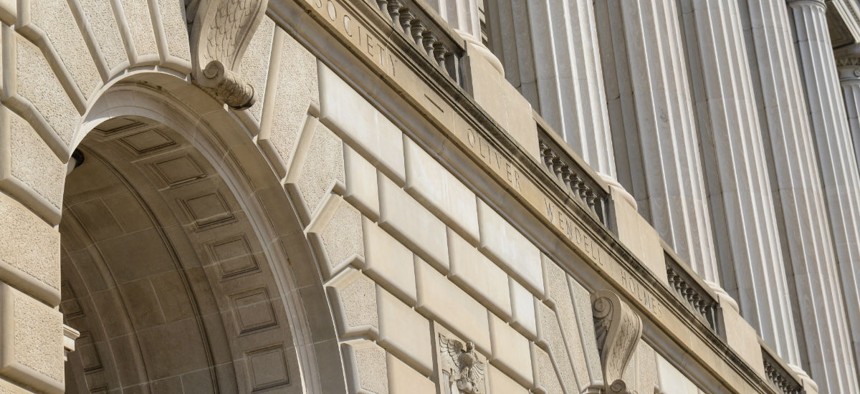
Brandon Bourdages / Shutterstock.com
IRS Whistleblower Program Makes Money But May Be Underfunded
GAO calls for improvements to streamline operations and further reduce tax gap.
This story has been updated.
Stepped-up reliance on private-sector whistleblowers has helped the Internal Revenue Service bring in $2 billion to the Treasury from tax cheats over the past five years, a watchdog said.
But budget cuts and poor communication have prevented the agency from doing even more to reduce the stubborn $450 billion tax gap, according to a Government Accountability Office report released Monday.
Though federal tax collectors have tapped whistleblowers for more than a century, the IRS has formalized the practice following a 2006 law that created an internal Whistleblower Office to pay informers 15 percent of proceeds from identified fraud—as much as $10 million in high-value cases.
“While the office has been able to grow its staff since 2007, this growth has not kept pace with the workload,” GAO noted in a report addressed to Sens. Orrin Hatch, R-Utah, and Chuck Grassley, R-Iowa, along with Rep. Peter Roskam, R-Ill. “Recent reductions to IRS’ budget have necessitated most divisions and offices make do with fewer resources,” and the Whistleblower Office “is not an exception.”
The office’s staff of 61 as of September received 10,000 claims a year, and faced a work backlog affecting 11,000 cases, including a backlog of about 2,500 denial or rejection letters not yet sent to would-be whistleblowers, GAO found.
Auditors also pointed to management shortcomings. The Whistleblower Office, which is spread over three IRS units, “could benefit from consolidation, but the IRS has not implemented its streamlining proposals,” the report said. “Any consolidation might save staff days across the agency, but would likely require staff increases wherever the functions were consolidated.”
Auditors, who interviewed both IRS officials and whistleblowers, faulted the Whistleblower Office for failing to monitor a key date for award calculations, which has caused “additional delays in award payment and ineffective program management.”
For example, the office for a time “did not have documented controls in place for sending mail, and at least once sent sensitive mail to an incorrect address that also had a return address indicating the letter was from the WO,” the report said. “This potentially compromised the identities of whistleblowers.” Delayed and protected communications also frustrate informants who are eager for updates on the status of their claims.
The tardiness and data inconsistencies within the office’s annual reports to Congress, GAO added, impede oversight.
Auditors recommended that Congress consider providing whistleblowers with legal protections against retaliation from employers, and that IRS strengthen its systems to track dates of responses while improving communication with external parties. The agency agreed.
In a statement the IRS said the Whistleblower Office was actually one of the few IRS units that has grown in a climate of budget cuts. "The inefficiencies identified by GAO with the Whistleblower Claims process are ones we had previously identified and are part of what led us to take action to strengthen the program," it said, noting that total whistleblower awards have topped $315 million. "GAO's recommendations will help us improve the process. Any backlogs in claims throughout the process are being addressed by the appropriate staff and a project is under way to improve and streamline operations."
Grassley, who was instrumental in setting up the Whistleblower Office in 2006, said in a statement: “The IRS commissioner has told me many times that the whistleblower office is an important priority. The GAO report gives the IRS a list of concrete steps to improve the whistleblower office. There’s a matter for Congress to consider as well. We all need to make sure the IRS puts out a welcome mat for whistleblowers.”
(Image via Brandon Bourdages / Shutterstock.com)
NEXT STORY: Are Millennials Bad Employees?







